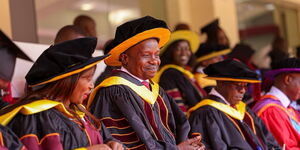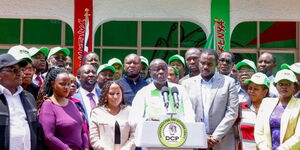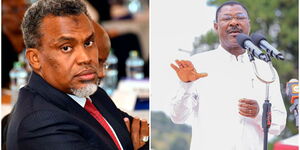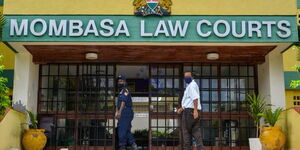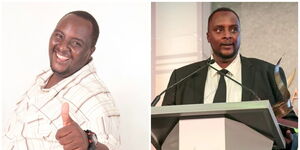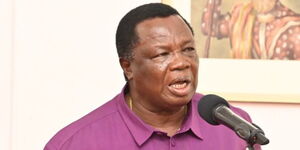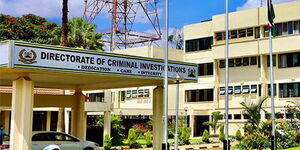Subjects in the STEM (Science, Technology, Engineering and Mathematics) field could be set for a revival in Kenyan schools, following the tabling of a new petition in the National Assembly on Thursday, 9 October.
Submitted by the Computer Science Teachers Association of Kenya (CSTAK), the petition is calling for urgent policy and legislative reforms to reverse the decline in STEM uptake.
Presenting the petition to parliament, Deputy Speaker Gladys Boss described the matter as crucial to Kenya's future competitiveness in an increasingly tech-driven global economy.
“Without timely intervention, the nation risks falling behind in global competitiveness, innovation, and its ability to thrive in the Fourth Industrial Revolution,” said Boss.
The government has, in recent weeks, upped efforts to boost STEM subjects with initiatives including the prioritisation of STEM subject teachers in the recruitment of 24,000 intern teachers for junior secondary schools.
However, in the petition, CSTAK warns that the current approach, which has also seen the introduction of basic coding into the Competency-Based Curriculum (CBC), is inadequate, particularly due to an over-reliance on single introductory tools, which limit learners' readiness for more advanced disciplines like Artificial Intelligence (AI) and data science.
Further, alarm was raised in the unequal funding of STEM compared to other co-curricular activities such as music, drama and sports.
CSTAK thus called on parliament to create a National Policy and Funding Framework for STEM and robotics to address the disparity.
While sections of lawmakers supported the petition, others, such as Marakwet East MP Kangogo Bowen, urged caution in prioritising STEM subjects, noting that basic infrastructure was still lacking in many rural schools.
The petition was formally committed to the Public Petitions Committee, which will investigate the matter and present its findings to the House in line with Standing Order 227(2).
If the proposals are adopted, it could effectively mean there will be stronger integration of practical STEM learning into the national curriculum and a renewed focus on Maths and technical skills.
CSTAK's petition comes just months after a report revealed that only 21 per cent of teachers in public junior secondary schools have been trained to deliver Science, Technology, Engineering, and Mathematics (STEM) subjects, raising red flags over the preparedness of both teachers and schools.
The State Education Report, developed by Zizi Afrique Foundation and Usawa Agenda, also revealed that 35 per cent of schools run without a single STEM teacher.
The report has highlighted critical gaps in teacher preparedness, infrastructure, and digital literacy as the country transitions to senior secondary education. Grade 10 is expected to begin in January 2026.


